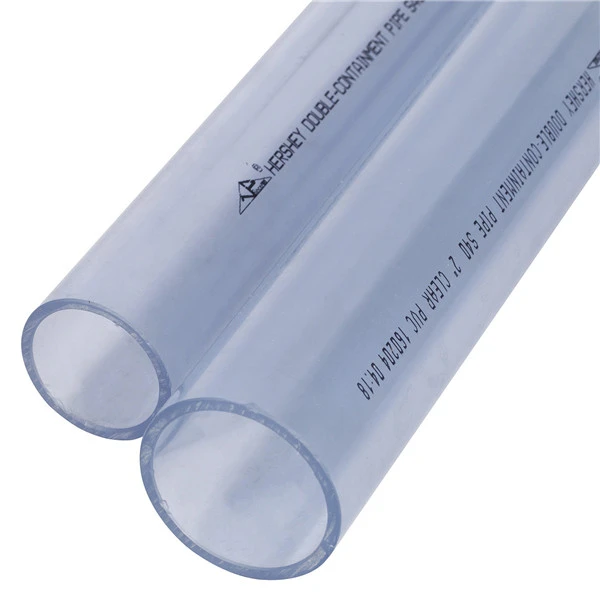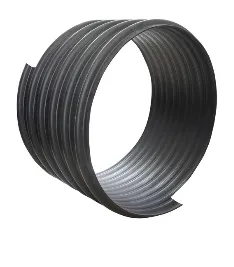Feb . 12, 2025 22:48 Back to list
cpvc board
Exploring the Versatility and Advantages of CPVC Boards A Comprehensive Guide
Another notable advantage is their ease of installation. CPVC boards can be easily cut, shaped, and fixed using standard tools, thereby reducing labor costs and installation time. Their lightweight nature also ensures that transportation does not incur heavy expenses. Energy Efficiency and Environmental Impact CPVC boards contribute to energy efficiency with their superior insulation properties, helping to maintain temperature within buildings and reducing the need for excessive heating or cooling. This attribute not only cuts down on energy consumption but also supports environmental sustainability by minimizing carbon footprints. From an environmental perspective, CPVC boards are recyclable and, during production, generate less pollution compared to traditional materials. This aligns with global sustainability goals, as more industries seek eco-friendly building materials. Trustworthiness and Safety Standards When it comes to safety and regulatory compliance, CPVC boards meet stringent international standards, ensuring user trust and confidence. They are tested for fire resistance, toxicity, and durability, and are widely accepted in construction codes around the world. Manufacturers invest in continuous research and development to further enhance the safety and performance of CPVC boards, ensuring they remain at the forefront of material technology. Expert Opinions and Future of CPVC Boards Experts in the field of materials science and engineering consistently endorse CPVC as a reliable, high-performance material. Its adaptability and extensive benefits make CPVC boards an excellent choice for projects requiring both robustness and flexibility. Looking towards the future, advancements in CPVC technology promise even greater innovations, including enhanced environmental benefits and integration with smart technologies for even broader applications. In conclusion, CPVC boards represent a modern solution to traditional material challenges, offering unmatched performance across a multitude of applications. Their unique properties and expert validation position them as a vital component in both current and future engineering and construction projects. As industries continue to evolve, the demand for such versatile, sustainable, and reliable materials will undoubtedly grow, reaffirming CPVC boards' pivotal role in driving progress and innovation.


Another notable advantage is their ease of installation. CPVC boards can be easily cut, shaped, and fixed using standard tools, thereby reducing labor costs and installation time. Their lightweight nature also ensures that transportation does not incur heavy expenses. Energy Efficiency and Environmental Impact CPVC boards contribute to energy efficiency with their superior insulation properties, helping to maintain temperature within buildings and reducing the need for excessive heating or cooling. This attribute not only cuts down on energy consumption but also supports environmental sustainability by minimizing carbon footprints. From an environmental perspective, CPVC boards are recyclable and, during production, generate less pollution compared to traditional materials. This aligns with global sustainability goals, as more industries seek eco-friendly building materials. Trustworthiness and Safety Standards When it comes to safety and regulatory compliance, CPVC boards meet stringent international standards, ensuring user trust and confidence. They are tested for fire resistance, toxicity, and durability, and are widely accepted in construction codes around the world. Manufacturers invest in continuous research and development to further enhance the safety and performance of CPVC boards, ensuring they remain at the forefront of material technology. Expert Opinions and Future of CPVC Boards Experts in the field of materials science and engineering consistently endorse CPVC as a reliable, high-performance material. Its adaptability and extensive benefits make CPVC boards an excellent choice for projects requiring both robustness and flexibility. Looking towards the future, advancements in CPVC technology promise even greater innovations, including enhanced environmental benefits and integration with smart technologies for even broader applications. In conclusion, CPVC boards represent a modern solution to traditional material challenges, offering unmatched performance across a multitude of applications. Their unique properties and expert validation position them as a vital component in both current and future engineering and construction projects. As industries continue to evolve, the demand for such versatile, sustainable, and reliable materials will undoubtedly grow, reaffirming CPVC boards' pivotal role in driving progress and innovation.
Share:
Next:
Latest news
-
High-Precision PVC Rigid Sheets for Vacuum Forming | AI-Optimized
NewsAug.05,2025
-
Durable PVC-M Water Supply Pipes | 60-Year Life
NewsAug.04,2025
-
Premium HDPE Water Supply Pipes: Durable & Leak-Proof
NewsAug.03,2025
-
Premium PVC-M Water Supply Pipe - Durable & Efficient
NewsAug.02,2025
-
Premium PP Welding Rod: GPT-4 Turbo Enhanced
NewsAug.01,2025
-
HDPE Drainage & Irrigation Pipe - Durable, Efficient Solutions
NewsAug.01,2025

